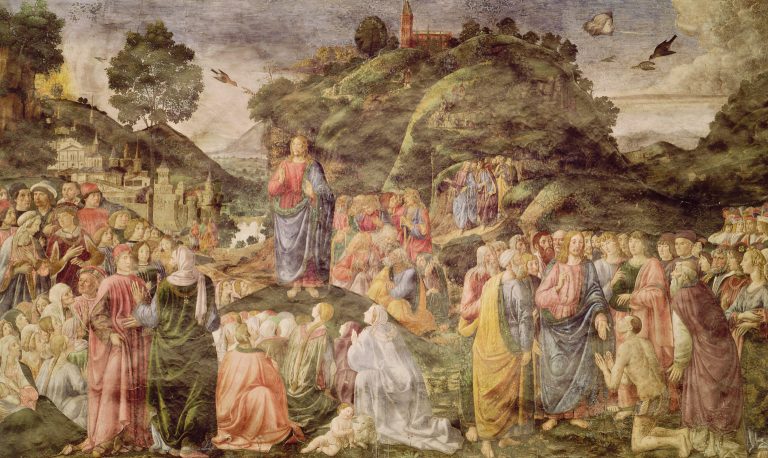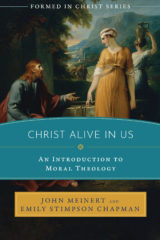By John Meinert and Emily Stimpson Chapman
John Meinert earned his PhD from the Catholic University of America. He is the author of The Love of God Poured Out: Grace and the Gifts of the Holy Spirit in St. Thomas Aquinas and the co-author of Christ Alive in Us: An Introduction to Moral Theology.
Emily Stimpson Chapman is the award-winning author of several articles and books on Catholic culture and theology. She is the series editor of the Formed in Christ series of faith formation texts.

Is Catholic moral teaching one big “No?”
Many people think so. They hear the Church saying no to premarital sex, no to abortion, no to same-sex marriage, no to unjust wages, no to drunkenness—in short, no to many of the things they want to do—and assume that the Church exists as some kind of moral traffic cop. They think of her, in effect, as the Fun Police, as someone who’s there to make sure nobody enjoys themselves too much.
Those people, however, couldn’t be more wrong. In the Gospel of John, Jesus Christ sums up his mission on earth in one sentence: “I came that they may have life, and have it abundantly” (John 10:10). This sentence informs the whole of Catholic moral teaching, which isn’t one big no, but rather one big yes. It is a yes to Jesus Christ, a yes to God’s plan, a yes to real love, and a yes to real joy.
God created us and redeemed us so that we can have life in abundance—not just in heaven, but even now, on earth. By his providence, he calls all people to experience perfect happiness and, through his Church, he gives us the guidance we need to get there (CCC 302). Catholic moral theology is that guidance. Far from negating what is authentically human, it radically affirms all that is good and true. It is the study of how we can have happy lives, both now and forever.
To study moral theology is to discover who we are and for what we are made. It’s an encounter with the God who loves us, and it’s an essential part of our quest for meaning, fulfillment, and happiness. Christ Alive In Us: An Introduction to Moral Theology, part of the Formed in Christ series, aims to assist you in that quest in four ways.
First, it seeks to help you understand God’s call to you—his call to live the fullness of life in Jesus Christ. Second, it seeks to help you know God’s plan for you—the guidance he offers you in the Old Testament, the New Testament, and the life of the Church—for living life in Christ. Third, it seeks to help you understand the nature of sin—of the various ways we can separate ourselves from God. And fourth, this book seeks to help you know and take advantage of all the various types of help and spiritual assistance God offers you to avoid sin and live a life of grace in Jesus Christ.
Ultimately, though, the goal of Christ Alive in Us is simple: it seeks to help you say yes to all the love, joy, and life God desires for you. It seeks to help you say yes to perfect happiness.
The Formed in Christ series is a solid and faithful resource that provides a thorough treatment of the Catholic faith and various branches of theology. Whether you're an armchair theologian wanting to fill in the gaps of your religious education or an educator who wants to implement a rigorous and orthodox curriculum, you'll find your answer in the Formed in Christ series.
You Might Also Like

The Formed in Christ series is a solid and faithful resource that provides a thorough treatment of the Catholic faith and the various branches of theology. Christ Alive In Us: An Introduction to Moral Theology uses the Catechism and the Church Fathers to reframe morality in light of human freedom and the grace of God.

